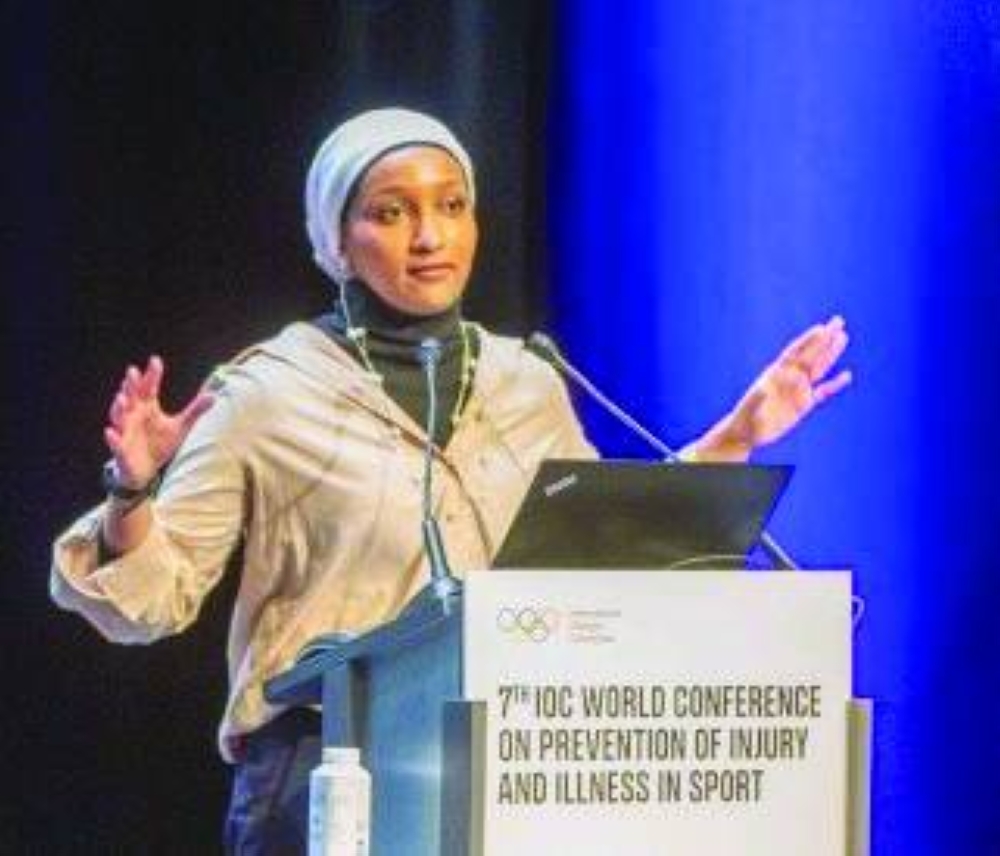Qatar University's (QU) College of Medicine participated in the 7th International Olympic Committee (IOC) World Conference on Prevention of Injury and Illness in Sport, held recently in Monaco featuring nearly 5,000 attendees.
The triennial conference, scheduled ahead of the Paris 2024 Olympics, provided a unique opportunity for the global sport and exercise medicine community to meet face-to-face. Among the guests were Prince Albert II of Monaco and HE Sheikh Joaan bin Hamad al-Thani, president of the Qatar Olympic Committee (QOC), and first vice-president of the Association of National Olympic Committees, who participated in the meeting of the 141st International Olympic Committee (IOC) Session.
Yosra Magdi Mekki, a fifth-year medical student at QU, in collaboration with Aspetar Orthopaedic and Sports Medicine Hospital, presented a 90-minute symposium on 'Friend or foe? The role of Artificial Intelligence in the quest to protect athletes' health and prevent injury and illness'.
Mekki's was one of the 40 proposals accepted by the IOC out of a total of 400. She spoke about wearing two hats as a researcher who combines her medical training from QU with expertise in developing machine learning and extended reality solutions for healthcare.
She also presented her latest single-author article published for 'Cell', titled ‘Physicians should build their own machine learning models’. 'Cell' has seen contributions from the likes of Andrew Ng at Stanford, often known as the ‘father of Artificial Intelligence’.
Dr Susu Zughaier, associate professor at the Department of Microbiology, College of Medicine, and Mekki are heavily involved in leading the national Qatar AI and XR in Healthcare Interest Group at QU.
Dr Khalid Bashir, head of Clinical Academic Sciences Department at the College of Medicine, stated that Mekki also enlightened faculty members on the application of AI in medical education. "As a direct result, I have integrated AI into our teaching methodologies for the year 6 clerkship and intend to employ it in the final OSCE assessment.”
Dr Paul Dijkstra, head of Medical Education at Aspetar, said: “We feel honoured to have been part of the diverse invited faculty from all over the world, representing the pre-eminent international authorities in injury and illness prevention. We are especially thrilled to, for the first time ever, present a symposium on 'The role of AI to protect athletes’ health and prevent injury and illness'. I chaired this symposium that involved faculty from Aspetar: Dr Pieter D’Hooge, chief medical officer; Professor Marco Cardinale, director of Research; Bart De Witte, the founding CEO of Hippo AI Foundation; and QU medical student, Yosra Mekki.
Dr Djikstra added: “Based on the feedback, this symposium laid the foundation for AI in the field and spotlighted important areas, including ethics, open source, leadership, and authentic collaboration, which will open the doors for the medicine and medical community to focus on and develop.”

Yosra Magdi Mekki at the symposium
